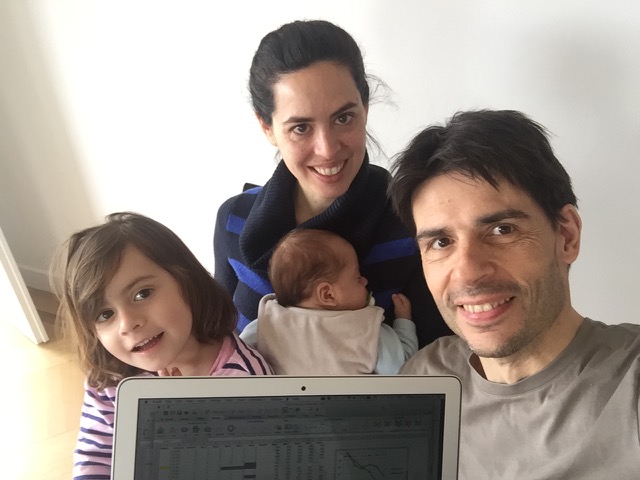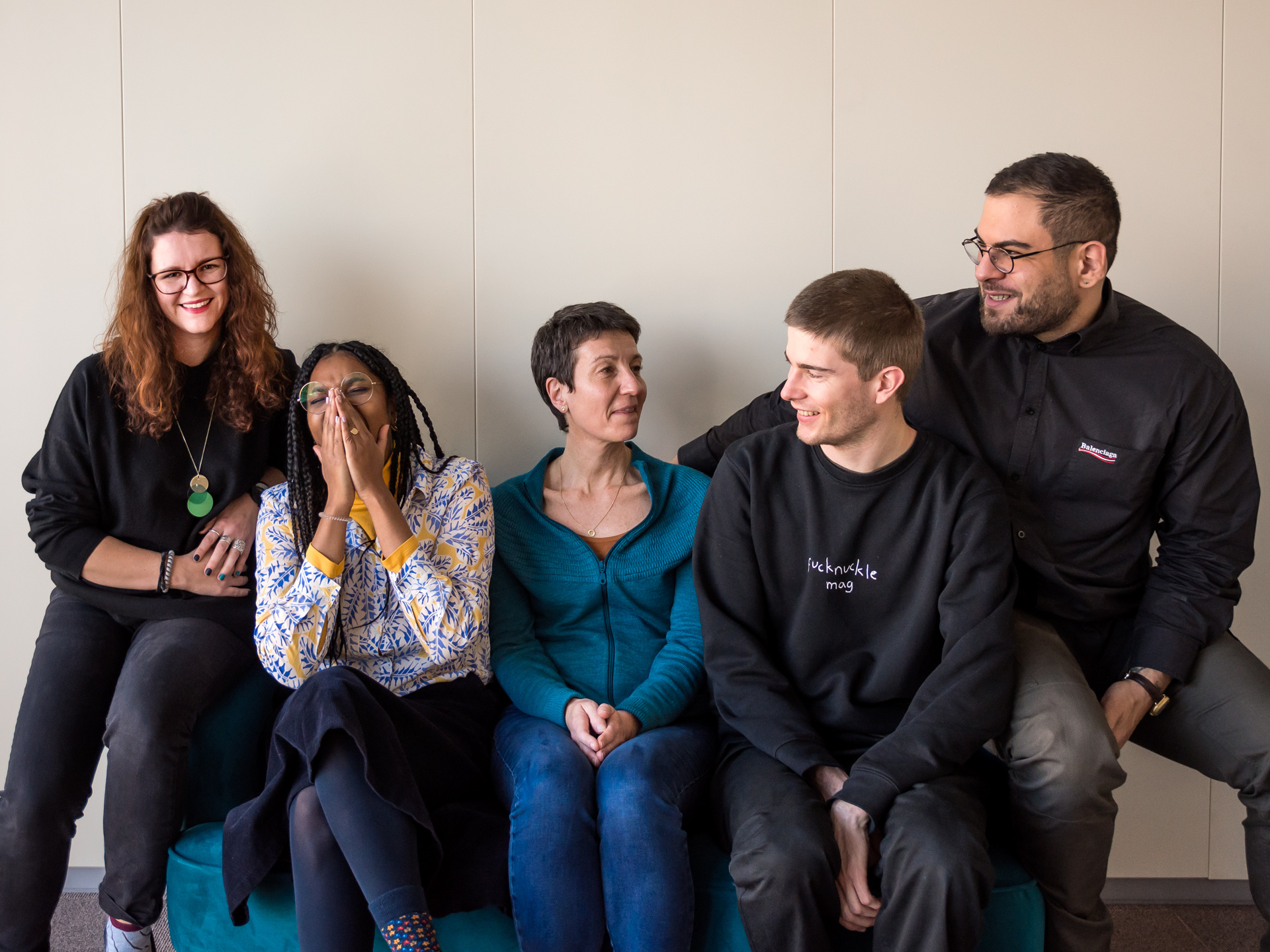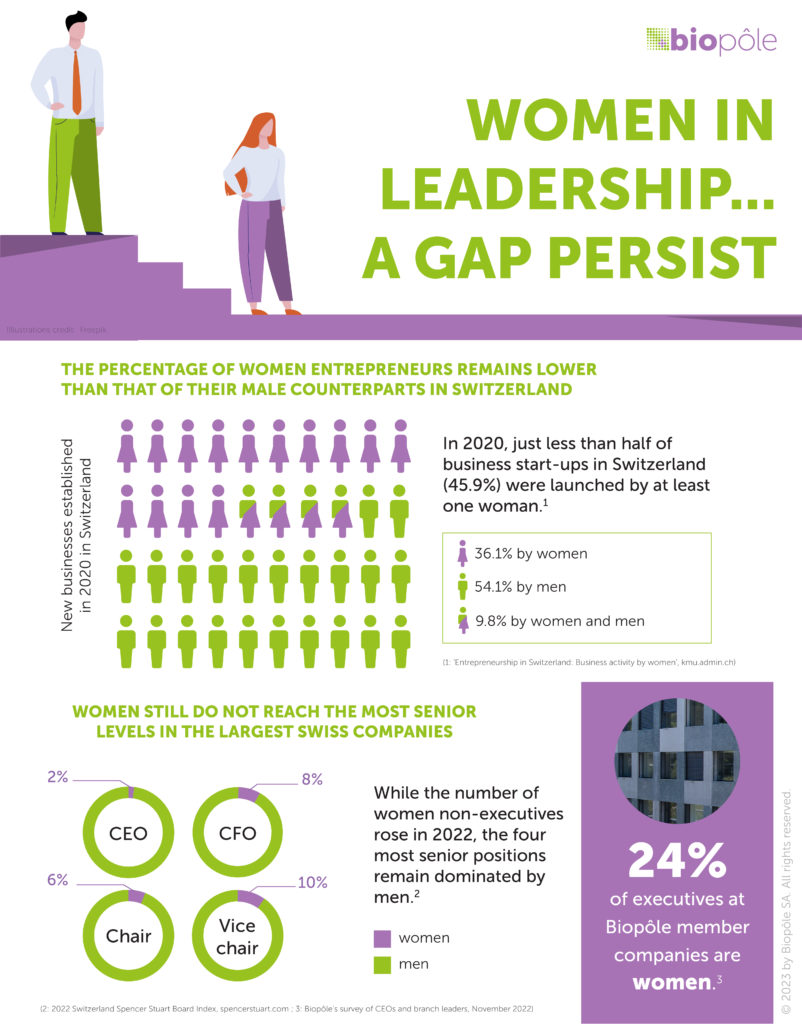Running a business is hard work – and so is running a family. Both take up an enormous amount of time, involve a high level of responsibility and often require round-the-clock attention. Becoming a ‘mumpreneur’, or a mother who is also an entrepreneur, requires dedication and resilience in the face of challenges – but it is not without its advantages. To understand what it takes, we speak to three inspiring business founders from the Biopôle campus about what it’s like to run a business while taking care of young children.
Yulia, who co-founded the fertility analysis company AKYmed in 2019, tells us about some of the challenges of juggling both: ‘It can be difficult to stick to work plans. If your baby is unwell, that takes precedence and even important meetings need to be postponed.’ Once we become parents, we are at the mercy of the many ailments that affect our children. Yulia also found that she had very little time to herself: ‘I’ve had to wave goodbye to relaxing weekends and evenings. When I need to get things done for my business, often the only time I find is when my baby is asleep.’
Samareh has three children and runs the biomedical-technology development company LASCCO with her husband – it was their ‘first baby’, as she puts it. She, too, talks about how tiring it can be as an entrepreneur and a mother: ‘Sleep is my greatest challenge right now. I try not to work when my children are around, so this often means catching up with work in the evenings.’
Despite these challenges, the mumpreneurs we spoke to feel that women shouldn’t postpone having children because of work. Emilie, who founded RADAR RP to popularise scientific research, reflects: ‘Pregnancy is part of life. It happens when it happens and you can get organised, delegate and surround yourself with a great team – both at home and at work. You’ll find your own way to be both a mum and a leader.’
For Yulia, it was an advantage to get pregnant while running her own business: ‘There was no pressure to go back to work after a specific period, which would have been the case if I had worked as an employee. With my own business, I could make decisions that suited me. In the end, what felt most natural to me was to continue doing some work alongside taking care of my baby. I even did some work at the hospital shortly after giving birth.’ Even though running a business is hard work, it also gives mumpreneurs flexibility. You don’t have strict working hours imposed by an employer and can take time out as needed. Yulia values this freedom: ‘It means I can plan my work to allow quality time with my baby during the day.’
It goes without saying that women shouldn’t try to do it all single-handedly. If we want to see more women starting and running businesses, it will be essential that they have support systems in place. This often starts by working as a team at home. For those mums who live with a partner, planning is key. ‘Running a business with three children entails careful organisation and the ability to intensely focus at work,’ Samareh tells us. ‘Sharing our responsibilities at work and at home has come naturally to us and has become an essential ingredient in our daily routines and family balance.’ Emilie concurs: ‘My partner and I discussed our roles as parents even before deciding to grow a family. We knew we wanted to be parents but still work four days a week. It means sharing responsibilities. It’s a challenge and we’re constantly learning, but we wouldn’t have wanted it to be any different.’
Beyond the family home, there are many other sources of help and support mothers can tap into. It takes a village – or rather, a network of care – to raise a child. ‘I am grateful to have the support of a fantastic team, coaches with a fine vision of leadership, wonderful friends and members of my enlarged family who have my back,’ Emilie tells us.
It is normal to need help – and lots of it. ‘Every mum goes through difficult times with a baby: there are the sleepless nights, dealing with any number of issues from breastfeeding troubles to a baby being ill, and the reality of postnatal depression,’ Yulia says. ‘Take all the help you can get. It will help you to feel restored and to enjoy your time rather than feel constantly depleted.’
There are also networks dedicated to supporting mothers, including the Swiss Mampreneures Association, which Emilie speak highly of: ‘It was set up for mumpreneurs to help each other negotiate the ups and downs of the entrepreneurial journey. I joined at a time when I felt the need for a lot of kindness. I found a stimulating environment with a lot of mutual understanding, without judgement or competition. Every member wants to help others. We all have our ups and downs but not at the same time. This allows us to give when we’re feeling good and receive valuable support when we’re feeling low.’
Such networks offer a supportive environment where mothers can step away from trying to be a ‘super mum’ – the mythical mother who always keeps everything under control, effortlessly and with a smile. It offers the chance to hear the experience of others and be honest about the highs and lows we face. In turn, this helps us to have realistic expectations, take the pressure off and embrace our imperfect human nature.
The mumpreneurs we spoke to are determined to foster an environment in their workplaces where women who have children can thrive. ‘I believe that success and progress can only be achieved when men and women are given equal opportunities, and when both are heard and considered,’ Samareh says. ‘Companies should focus on a woman’s competence, human qualities and achievements, rather than assume her path will be bumpier because she may devote time and energy to her children.’ Supporting women into leadership positions makes sense from a financial perspective. As Michelle Scott, VP and Head of Discovery and Biotechnology Solutions at Labcorp, explains in our article about empowering women leaders, companies with greater gender diversity are more successful: diversity creates value.
We would all benefit from a shift in mindsets towards seeing parenthood as a strength that women bring to their work rather than an impediment. Emilie explains that ‘becoming a mum helped me to get to know myself better and align with my values. I simply had to set the best example for the little humans who came into our world, and that meant sorting out my relationships – including at work.’ The qualities that are essential in parenting – patience, diplomacy and compassion, among many others – should also be present in the workplace.
The opposite is also true: the work we choose and how we carry it out can inform and enrich our family life. Samareh believes the values she lives by in her work will be an inspiration for her children: ‘I hope that my entrepreneurial journey will inspire my children to embrace their own passions. I want them to enjoy hard work and see its value in helping other people.’ Parenthood and work are not two opposite spheres: there is clear overlap between the two and they can work in symbiosis. It takes courage, determination and a good few sleepless nights to take on both roles, but mumpreneurs show us it can be done – and that it’s well worth it.
Complementary content on this topic




